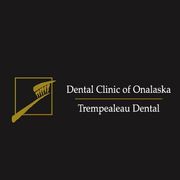What You Should Know About Sleep Apnea & Oral Health

If you’ve been diagnosed with sleep apnea like 18 million other Americans, you likely have a lot of questions about how it affects your life. However, you should also speak with your dentist to see how this condition affects your oral health. Here’s what you should know about sleep apnea and how a dentist can treat it.
What Is Sleep Apnea?
Apnea is a disorder that briefly closes the airways at night when you are sleeping, causing you to not get enough oxygen. As a result, you could feel tired throughout the day—even if you feel like you got a full night’s rest. Possible symptoms of sleep apnea include dry mouth, snoring, headaches, irritability, or daytime sleepiness.
How Does Sleep Apnea Affect Your Oral Health?
 Since sleep apnea leads to mouth breathing, many people experience dry mouth. Because saliva is needed to prevent bacteria and plaque buildup on your teeth, cavities can develop. Your dentist can suggest mouth rinses that increase the production of saliva, but you should also drink a lot of water in the morning to offset this condition. Due to the ongoing fatigue from lack of sleep, the presence of sleep apnea also causes several other health conditions, including depression, high blood pressure, and heart disease.
Since sleep apnea leads to mouth breathing, many people experience dry mouth. Because saliva is needed to prevent bacteria and plaque buildup on your teeth, cavities can develop. Your dentist can suggest mouth rinses that increase the production of saliva, but you should also drink a lot of water in the morning to offset this condition. Due to the ongoing fatigue from lack of sleep, the presence of sleep apnea also causes several other health conditions, including depression, high blood pressure, and heart disease.
If you suspect you have sleep apnea, you may need to have a sleep study done to confirm the diagnosis. In addition, a doctor might recommend a ventilator or breathing machine for you to wear at night to ensure you’re getting enough air while you sleep. However, a dentist can also suggest a mouthguard that slides that jaw forward and keeps the airway open.
When it comes to your oral health, the dentist at the Dental Clinic of Onalaska in La Crosse County, WI, can treat sleep apnea with a mouthguard. He provides high-quality dental care, ranging from teeth cleanings to dental implants and veneers. Call (608) 783-3341 to schedule an appointment, or visit their website to learn more about their services.
About the Business
Have a question? Ask the experts!
Send your question

